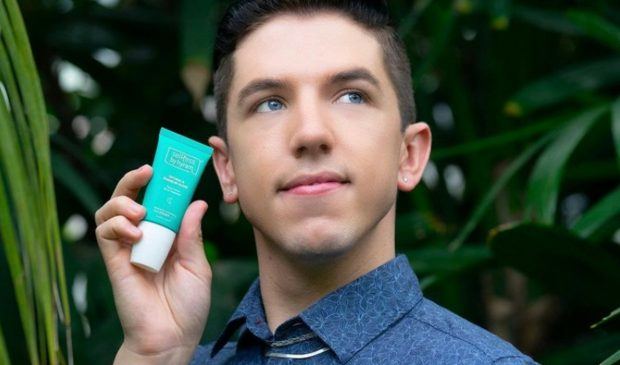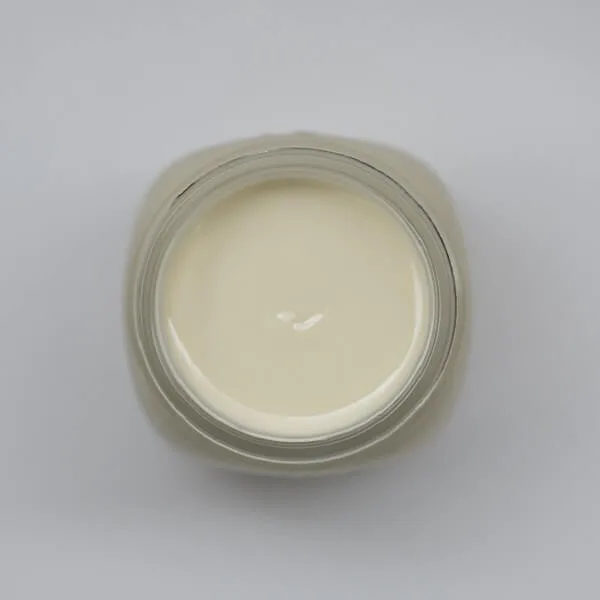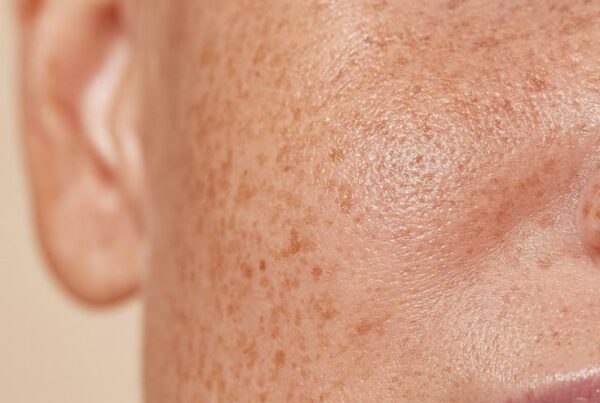The concept of clean beauty has been a hot topic for quite some time but is nonetheless a confusing one. One might think that the notion of a “clean” face wash would be par for the course. However, the clean beauty movement is all about simplicity, transparency, and sustainability. Products that are made with fewer, but higher quality, natural ingredients, clearly listed on the packaging, and without those toxic and hard-to-pronounce chemicals. Euromonitor International hosted a webinar recently called, “Beauty in Recovery: Going Green and Clean.” In this article, we can take a closer look at their findings, the impact of the clean beauty movement on the beauty industry, and what its future might hold.
Pandemic accelerates clean beauty movement
Following the COVID-19 pandemic, consumer awareness is at an all-time high. Shoppers opting for more eco-friendly and ethical options; in 2021, people want to know what’s in their products, where they come from, and where they’re going to end up. The honesty and straightforwardness of clean beauty brands and products appeal to this new, more conscious consumer, and it’s turning the beauty industry on its thoroughly conditioned head.
Statistics and Serums
At this point, stating that the COVID-19 pandemic has had a severe impact on, well, anything is kind of like looking at your odds of winning the lottery: obviously depressing. The 3% decrease that the beauty industry suffered in 2020 doesn’t really come as a surprise; however, research shows that while all other categories, such as cosmetics, fragrances, and oral care, took a dive, the skincare numbers remained level.
Furthermore, while the 5 globally leading beauty companies suffered severe losses, private labels and local businesses were on the rise. So, how exactly has your favorite shea butter caused a major industry change?
Power to the People
As easy as it may be to feel like a powerless cog in this capitalist, consumer-driven machine, we tend to forget that the machine is exactly that: consumer-driven.
Companies create products based on the wants and needs of the consumers, who then purchase these products and keep said company in business. However, if the consumer’s needs change, the company is forced to change alongside it, and this is exactly how the clean beauty movement is climbing the rungs of the industry.
Green and Clean
Sustainability and going “green” are topics that have been steadily on the rise for years now, and the 2021-consumer is fuelling this eco-friendly fire. More aware than ever before, the post-pandemic shopper seeks our transparency and simplicity in their products: from ethical production to natural ingredients, consumers want to know what they are spending their disposable income on.

One of the top clean skincare brands of 2021 is Summer Fridays, a US-based up-and-coming skincare brand best known for its simple and natural approach to skincare. Their two secret ingredients are:
- Clean, minimal, vegan ingredients, clearly listed on the products.
- Simple product packaging that is also sustainable and recyclable
Add these two elements into the 2021 Zeitgeist, and they have a recipe for not only glowing skin but also glowing reviews.
The Simpler the Better
Aside from the obvious appeal that comes with knowing what you’re putting in and on your body, a user-friendly approach to ingredients is actually a tactic that increased sales for many brands during the 2020 lockdown period, as consumers were able to make informed, independent choices regarding their skincare, and since most of us don’t have a Ph.D. in chemistry, it’s the simpler, the better. E-commerce increased by 23% in 2020, and it is predicted that North America will see a 47% increase in skincare purchased through e-commerce by 2025.
The Spread of Simplicity
Considering the nature of the internet’s growth, it comes as no surprise that social media is further hyping the idea of clean and simple products. Individuals are sharing their product must-haves, and skincare tips and tricks, and due to the accurate (and sometimes equally terrifying) algorithms that platforms such as Instagram and TikTok utilize, these posts, and the products mentioned in them, are quickly gaining traction.
 Popular TikTok account @SkincareByHyram, run by Hyram Yarbro, gained millions of followers over the Lockdown period by reviewing products and sharing his favorites, all according to his catchphrase: “Ingredients Don’t Lie.” Yarbro is known for his analysis and praise of affordable skincare brand CeraVe, due to its accessibility and clean ingredients. The brand reported a sales increase of 65% following Yarbro’s endorsement of the products to his 6.5 million TikTok followers, so clearly they must be doing something right, according to consumers.
Popular TikTok account @SkincareByHyram, run by Hyram Yarbro, gained millions of followers over the Lockdown period by reviewing products and sharing his favorites, all according to his catchphrase: “Ingredients Don’t Lie.” Yarbro is known for his analysis and praise of affordable skincare brand CeraVe, due to its accessibility and clean ingredients. The brand reported a sales increase of 65% following Yarbro’s endorsement of the products to his 6.5 million TikTok followers, so clearly they must be doing something right, according to consumers.
Skinimalism and clean beauty
The neologism “Skinimalism” came about in 2021, and it sums up consumers’ less-is-more approach to products following the extended at-home self-care period of 2020 (it’s also very catchy).
Following the overall lifestyle trend of simplicity that came out of 2020, consumers are moving away from the idea of a 16-step skincare routine (that may or may not take 45 minutes to complete every. Single. Time.)
Multi-purpose products will help to declutter not only your shelves, but also your mind. Multi-purpose products, such as the famous Dr Pawpaw Balm, can be used for, you guessed it, multiple purposes. A balm that can be a lip balm, a hand cream, a moisturizer, or even a quick-fix for pesky fly-away hairs.
Multi-purpose products help to cut down on not only the stress of always carrying 4 different tubes in your bag, but also waste. Not to mention the appeal of a multi-use product from the point-of-view of your bank account, which all of us more precious about after the financial turbulence of a pandemic.
Where exactly is your money going?
Speaking of money, the 2021 consumer wants to know that their hard-earned money is going to a company that shares their values, which is where transparency in skincare extends further than the glass skin trend.
Increasingly more consumers consider sustainability to be a core value to them, and according to research, 6 out of 10 consumers are willing to change their purchasing behavior in favor of going green.
Greener production methods
![clean beauty [longevity live]](https://longevitylive.com/wp-content/uploads/2020/03/adult-attractive-beautiful-beauty-413885-320x213.jpg) This new attitude is encouraging brands and companies not only to adopt greener production strategies, but to emphasize these in their products and overall brand image. UK-based cosmetics brand, Lush, gained their popularity not only through their practically edible products. The company also emphasized that their brand is vegan, minimal waste, and sustainable, and their success has been nearly as explosive as their bath bombs.
This new attitude is encouraging brands and companies not only to adopt greener production strategies, but to emphasize these in their products and overall brand image. UK-based cosmetics brand, Lush, gained their popularity not only through their practically edible products. The company also emphasized that their brand is vegan, minimal waste, and sustainable, and their success has been nearly as explosive as their bath bombs.
Clean beauty is attainable and sustainable
More and more brands are prioritizing sustainability, as well as their positioning as greener brands. Leading cosmetics company, L’Oréal has released a prototype for sustainable packaging made from captured and recycled industrial carbon emissions.
Working alongside LanzaTech and Total, L’Oréal will be able to create sustainable plastic. This kind of approach will maintain their position in the industry, as they are able to combine the trust and loyalty that they have gained through the years with the appeal of going green.
Companies adopting greener strategies, and being transparent about these, will appeal to the 2021 consumer, and feed into a more sustainable future overall, while still maintaining their loyal customers.
Digital + Physical = Phygital
Movements such as clean beauty happens when the industry and the consumer can be mutually beneficial; the company supplies, the consumer buys, a tale as old as time. However, this symbiotic relationship can only flourish when the two understand each other’s needs, and a year-long pandemic is bound to scramble things up a bit. While society is slowly but steadily returning to normality, it does feel a bit like a broken cup that’s been glued back together.
Despite shops having opened back up quite some time ago, many consumers are opting to stick to online, having mastered independent shopping (in your pajamas). However, the symbiotic brand-consumer relationship only works if both the metaphorical anemone and clownfish both show up. Brands have had to turn to alternate ways of connecting with their at-home consumer; digital foundation-matching, lipstick try-ons and personalized survey-based products sufficed during lockdown, but 2021 has provided an opening for a brand-new tactic in the beauty industry: Phygital.
Phygital allows brands and consumers to have the best of both worlds, while also being a greener alternative: skin analysis technology eradicates the need for tubes upon tubes of testers in shops and allows consumers to personalize and multi-purpose their product: sunscreen+foundation, moisturizer+serum, the options are endless, while the waste is finite.
What does the future hold?
The 2025 beauty industry prediction shows a steady increase for skincare. As more and more brands adopt sustainability and skiniminalism into their products, the future of this movement is clear: it’s clean, green, and part of your beauty routine.
References
This article is based on a Euromonitor International, a market research provider, Webinar “Beauty in Recovery: Going Green and Clean.”
Euromonitor International’s website can be accessed here: http://blog.euromonitor.com/
Fetto, F. 2021. Hyram Yarbro, Gen Z’s skincare saviour: ‘YouTube gave me a reason to live’. [Online] Available at: https://www.theguardian.com/fashion/2021/jun/06/hyram-yarbro-the-most-powerful-skinfluencer-on-social-media-talks-to-funmi-fetto [Accessed: 2021-07-02].
L’Oréal. 2021. Lanzatech, Total and L’Oréal: the First Cosmetic Plastic Bottle Made from Industrial Carbon Emissions. [Online] Available at: https://www.loreal.com/en/news/group/lanzatech-total-and-loreal/ [Accessed: 2021-07-03].
Schallon, L. 2021. The Best Clean Beauty Products of 2021. [Online] Available at: https://www.glamour.com/gallery/best-clean-beauty-products [Accessed: 2021-06-29].
Summer Fridays. 2021. Jetlag Mask. [Image Online] Available at: https://summerfridays.com/ [Accessed: 2021-07-04].
The Eco Well. 2020. A critical look at the ‘clean’ beauty movement. [Online] Available at: https://www.theecowell.com/blog/clean-beauty [Accessed: 2021-06-29].
Alma Herbs: The skin, the microbiome and CBD: https://almaherbs.co.za/the-skin-the-microbiome-and-cbd/



![women [longevity live]](https://longevitylive.com/wp-content/uploads/2020/01/photo-of-women-walking-down-the-street-1116984-100x100.jpg)










